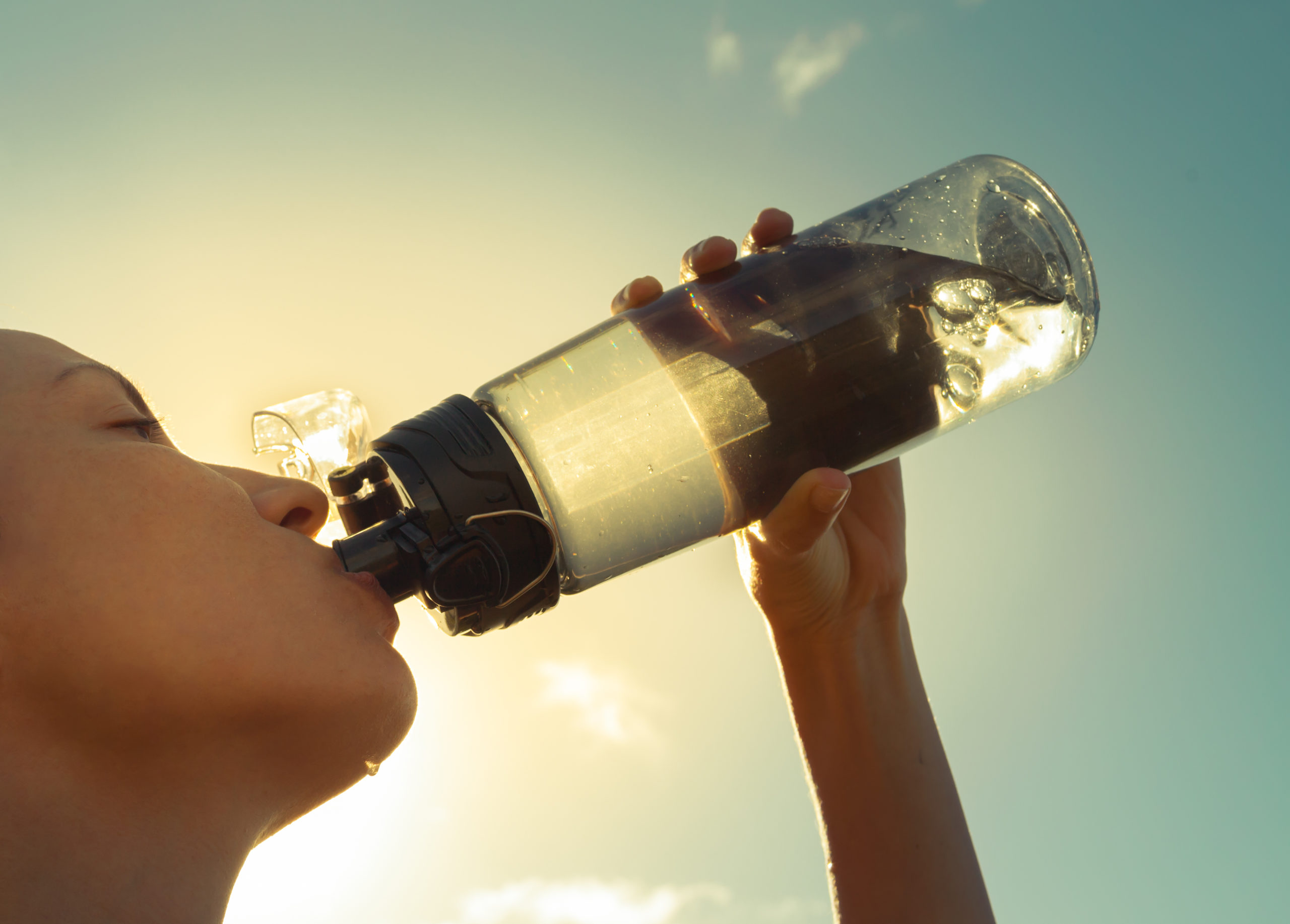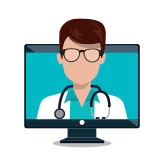
Sweating is your body’s way of cooling you down when your body temperature rises. While this is an effective way to keep your body cool, you’ll need to replace this liquid to keep from getting dehydrated. The warm weather of the summer months means you’re likely sweating more often, but it’s not always easy to remember to drink water or even know when you need more. Here are some ways to prevent yourself from getting dehydrated and things to watch out for.
Drink Enough Fluids During the Day
Dehydration can be caused by a lack of fluids and is not always a result of hot weather or excessive sweating. With that in mind, you’ll need to take measures to make sure you’re not losing more bodily moisture than you’re taking in. You can do this by preventing yourself from losing moisture and by taking in more. You will find a few different opinions about how much water to drink, but eight 8-ounce glasses per day is generally agreed upon by health authorities. If you’re active, you should drink 8 to 12 ounces of water for every ten to fifteen minutes that you remain active, especially if you’re outdoors.
Choose Your Beverages Carefully
Be careful what kinds of fluids you take into your body, since not every fluid containing water will keep you hydrated. In fact, many kinds of beverages are more likely to dehydrate you instead. These beverages include alcohol, coffee, teas, and sodas. Loss of bodily fluids through sweating and urination results in a loss of electrolytes such as potassium and sodium, and these electrolytes provide your muscles with the energy they need. This is why it’s a good idea to use sports drinks like Gatorade or Powerade when you’ve been sweating or urinating frequently. Electrolytes also keep the muscles from cramping during strenuous physical activity.
Symptoms of Dehydration
Thirst is the first sign of moderate dehydration, but you won’t always be thirsty when you’re dehydrated. Dark yellow urine is another sign of dehydration, along with not peeing very much. You might have cool, dry skin and have a headache or muscle cramps when you are mildly or moderately dehydrated. Symptoms of severe dehydration include those mentioned above, as well as rapid breathing and a rapid heartbeat. You might feel dizzy and might even feel like fainting. People who rarely drink enough water have chronic bodily dehydration that can manifest as sleeplessness, confusion or irritability, and a lingering lack of energy.
These are all signs that you might need medical treatment for your dehydration. Dehydration can be very dangerous and possibly life-threatening if it gets too severe. If you have been experiencing dehydration symptoms regularly, you might require medically-assisted rehydration. If you have been sick or have been working in hot environments, you are at an increased risk of being chronically dehydrated, so you should make sure to manage your water intake and meet with your physician if you’ve been experiencing symptoms.
Schedule an Appointment
At WellCare Urgent Care, we can perform intravenous rehydration if you’re experiencing severe dehydration symptoms. We can also make sure you’re getting the fluids and nutrients you need to stay healthy and active. To learn more or schedule an appointment with our team, give us a call or fill out our online form.



